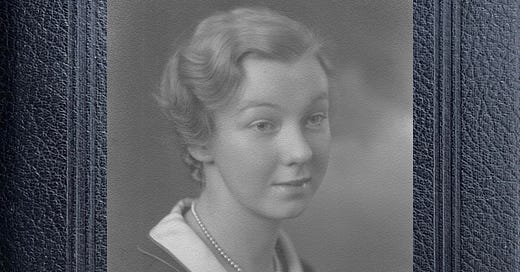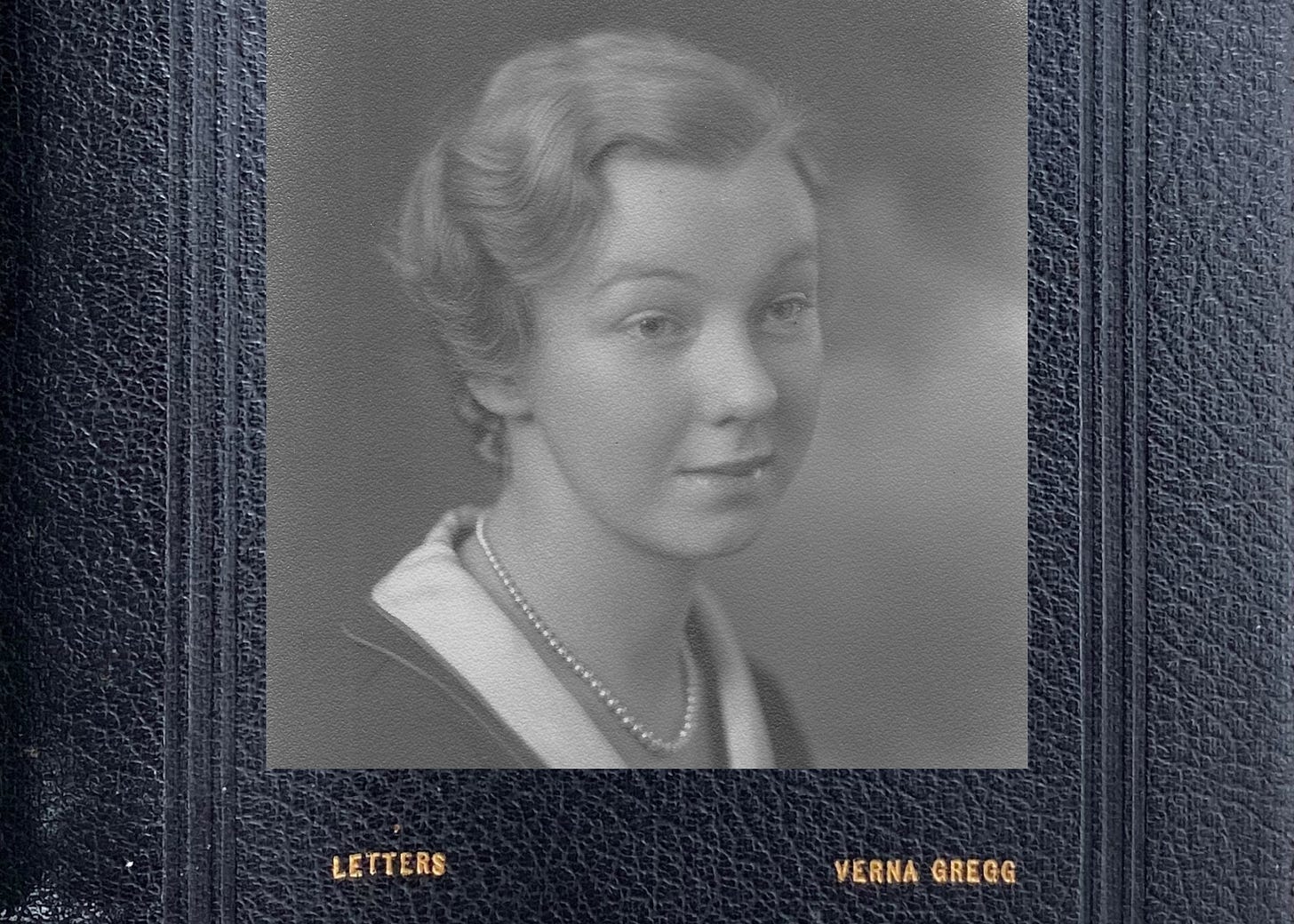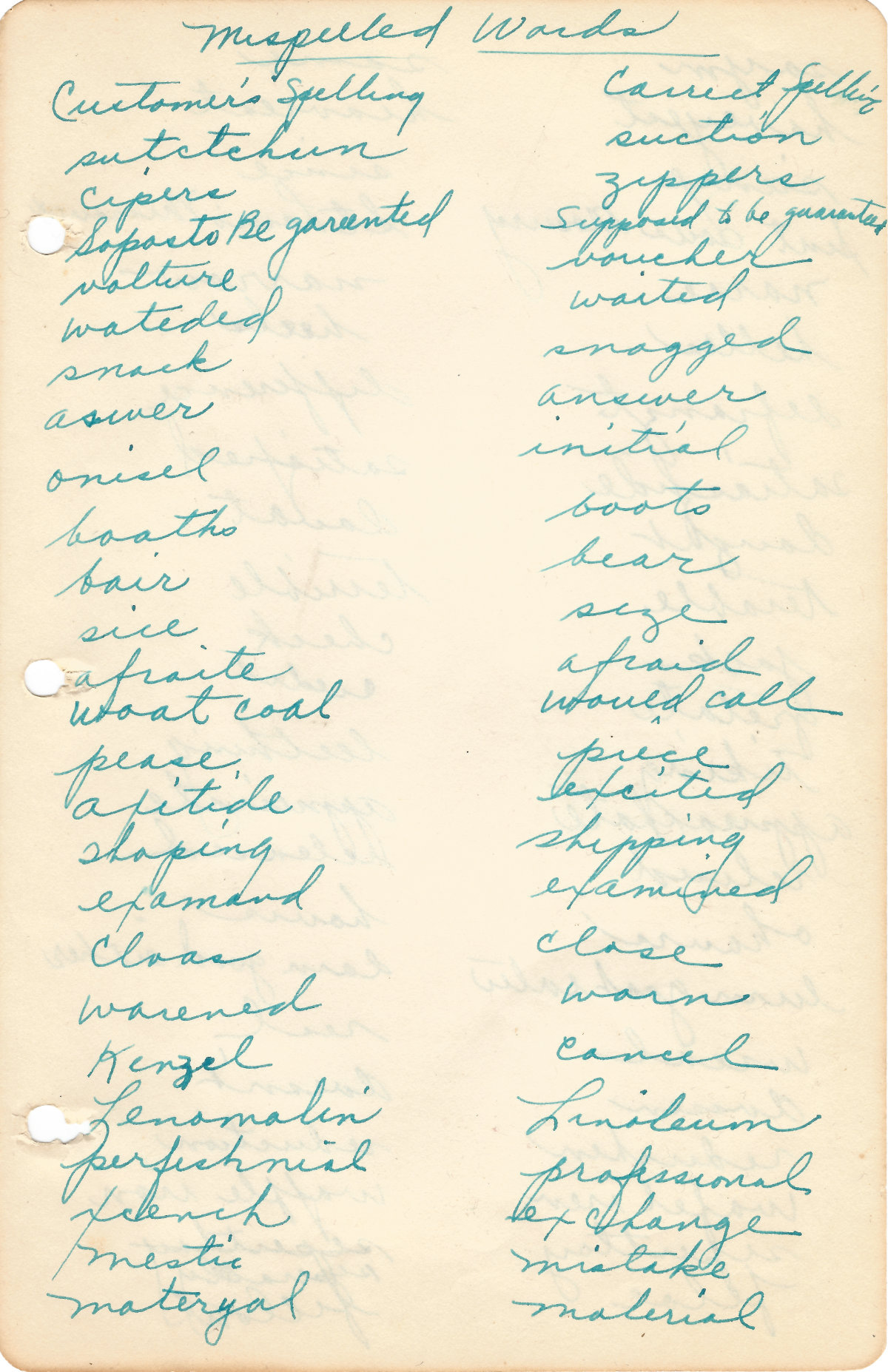The Story Behind Dear Mister Ward Part 3
Where I hear my grandma's voice for the first time in 30 years.
The story of how my uncle found the letters was not dissimilar from how I rediscovered them. He was helping to clean out the family home in Minonk, Illinois after my grandpa had passed away in 1980. He had actually seen the letters and asked her about them before but this time he recorded a full interview on audio cassette.
Recorded in 1981 the tapes had warped slightly with age. That didn’t affect the impact of hearing my grandma’s voice. It was simultaneously familiar and surprising. I remembered well her thick Minnesota accent. My dad had left the midwest when he went to Harvard in 1959 and had largely lost his accent by the time I came around. So unlike many of my relatives it wasn't an accent I heard every day and was one of the main things I associated with her. What was surprising was the huskiness of her voice. I had forgotten just how deep it was. It only emphasized that she was not only from a different place but a different time. One where next to every office typewriter there was an ashtray.
The first audio file I listened to was the second part of the interview. The recording kicked in as she was finishing the first verse of a children’s rhyme called “The Mysteries of Anatomy.” Something she had memorized in school. I later found a note she made to herself to record that for us grandkids so I guess she took care of that during the interview. It brought to mind some vague memories of other rhymes she would tell me as a kid.
During the interview he asked many detailed questions about the inner workings of the Wards office, my grandma's role there, and personal details of her life. Some of her recollections were clearer than others. Unsurprisingly some of the menial day to day details of the job and corporate structure had not stuck with her all that well. Memories of her coworkers, summers spent sleeping on a porch swing at White Bear Lake, being courted by and eloping with my grandpa, going to night school, and a disappointing babysitter were all much more vivid.
The most interesting details she remembered of her work were those related to the letters. Through them I got a fuller picture of what happened to the letters after they reached Wards, how she interacted with them, and at least a notion of how Wards had developed such an intimate relationship with their customers. Wards also seemed to have a generally positive relationship with their employees too. She remembered her time there fondly and while this is not a biography of Verna Sylvia (Stolpe) Gregg a brief summary of her time there seems appropriate.
Verna graduated high school in 1932 into the depths of the Great Depression. She worked for awhile at a restaurant making $3 a week but continued to look for better work. She started at Wards by the fall of 1932. Her starting salary was $13 a week which while still low was certainly an improvement. She had learned typing and shorthand in school and she started in the customer service department as a typist. Within a few years she entered the role of correspondent. Montgomery Ward advertised that you could write into the catalog in any language and she could read Swedish and make out both Norwegian and German. Anything she couldn’t read her supervisors would send to the University of Minnesota to translate. When I heard that I couldn’t help but wonder if any of the letters that she saved were originally written in a different language.
Her primary responsibility was answering complaint letters sent from within the region served by the Northwest office. I’m not sure of the exact boundaries but there are letters from Minnesota, Wisconsin, North Dakota, South Dakota, Montana, and California. They would be delivered to her desk and she would decipher them, identify the complaint and craft a response. But rather than typing the response she would speak it into an Edison Dictaphone. Her voice would be cut into the wax cylinder and that would be given to the typists in the office, sent back to her for approval and then on to the office supervisor. The recording would then by scraped off and the cylinder used again for another letter. I wish those recordings had been preserved as the cassette recording and been so I could hear her responses. As it stands I only have one response letter which may have been written by her but signed by her supervisor.
She didn't provide a lot of details about how or why she collected the letters. She does mention that she was the only one in her office but that there was a guy in Chicago who did the same thing. They even traded some letters. Which may explain why some of the letters appear to have come from outside the area served by the Northwest Office.
In addition to her main responsibilities responding to letters she did a little “piece work” on the side catching typos and other errors in the catalogs. Employees were also welcome to make suggestions of products that should be carried or ways in which they could be improved. She was paid per correction or suggestion on a sliding scale based on some undisclosed criteria. I found this interesting because she also made note of many of the typos and grammatical errors in the letters. It appears that she painstakingly recreated many of them when she typed the letters but did fix some that would have rendered the letters indecipherable.
In the same way that the letters provided a glimpse into the world of the people who wrote them, this interview revealed details about my grandma’s life I had never known. I had heard plenty of stories from my dad’s childhood but I knew little of her life before that. Hearing these stories in her own voice made the letters all the more personal. They were a connection to someone who I hadn’t had nearly enough time with before she passed away. Somehow I never thought to ask her about her work experience when I was a kid. We were too busy playing tennis, going fishing, riding around in a paddleboat and playing Rumikub.
The stories also provided a cultural context that broadened my interest in the letters. Not just about the time and place but also about Wards as a company. In my grandma’s words they “would really turn over backwards to have a satisfied customer.” Having worked in retail and other jobs that involved customer service I appreciated the personal touch they seemed to have. It stands in stark contrast to today when “complaints departments” for most companies consist of interns on Twitter, underpaid phone operators reading from a script, and data mining chatbots. With the understanding that no corporation is perfect I had been developing a respect for Wards and wanted to know more. While the focus of Dear Mister Ward would always be on the letters they wouldn’t exist without Montgomery Ward. So I set out to better understand the company that these folks felt so comfortable reaching out to with in my grandma’s words “all kinds of complaints.”
Next in the 4th and final part: I get to know Mr. Ward






